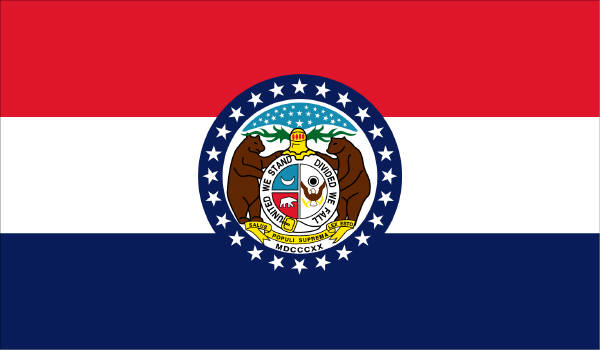Missouri Proposition 14, Workmen's Compensation Referendum (1920)
| Missouri Proposition 14 | |
|---|---|
| Election date |
|
| Topic Workers' compensation laws |
|
| Status |
|
| Type Veto referendum |
Origin |
Missouri Proposition 14 was on the ballot as a veto referendum in Missouri on November 2, 1920. It was defeated.
A "yes" vote supported enacting a law to establish a workmen's compensation. |
A "no" vote opposed enacting a law to establish a workmen's compensation. |
Election results
|
Missouri Proposition 14 |
||||
|---|---|---|---|---|
| Result | Votes | Percentage | ||
| Yes | 344,724 | 47.79% | ||
| 376,651 | 52.21% | |||
-
- Results are officially certified.
- Source
Text of measure
Ballot title
The ballot title for Proposition 14 was as follows:
| “ | Proposition No. 14 Referendum Ordered By the Petition of the People Committees substitute for Senate bill No. 389, enacted by the Fiftieth General Assembly, the purpose of which is to provide for a system of workmen's compensation, elective as to railroads and private employments, compulsory as to the state and other public employers unless their employes reject the act: defining the rights, duties and liabilities of employers and employes electing to accept or reject the act, and of third persons in connection therewith; creating a workmen's compensation commission, defining its powers and duties and prescribing the rules and regulations relating to the enforcement and carrying out of said act. | ” |
Path to the ballot
A veto referendum is a citizen-initiated ballot measure that asks voters whether to uphold or repeal an enacted law. This type of ballot measure is also called statute referendum, popular referendum, people's veto, or citizen's veto. There are 23 states that allow citizens to initiate veto referendums.
In Missouri, the number of signatures required for a veto referendum is based on the number of votes cast for governor in the state's most recent gubernatorial election. In two-thirds of Missouri's congressional districts, proponents must collect signatures equal to 5% of the gubernatorial vote for veto referendums. A simple majority vote is required for voter approval.
See also
External links
Footnotes
State of Missouri Jefferson City (capital) | |
|---|---|
| Elections |
What's on my ballot? | Elections in 2026 | How to vote | How to run for office | Ballot measures |
| Government |
Who represents me? | U.S. President | U.S. Congress | Federal courts | State executives | State legislature | State and local courts | Counties | Cities | School districts | Public policy |



